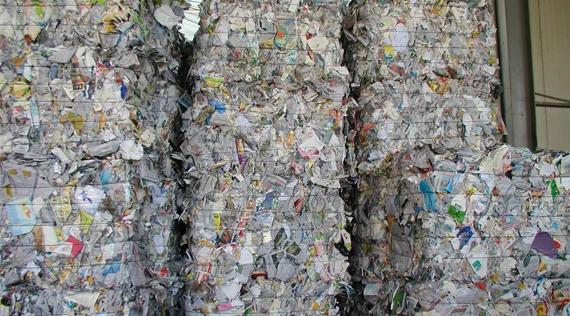
SEATTLE (Waste Advantage): Next-generation plastic recycling technologies could breathe new life into the U.S. petrochemical industry, and not a moment too soon. The global recycling market has been cracking under the strain of plastic waste, and export rules are tightening. In the latest development, the European Union announced a new export ban at the end of last month, one that could have an impact on U.S. markets.
China touched off a crisis in the global recycling market in 2018 when it banned certain types of waste imports. The move exposed glaring shortfalls in the traditional approach to recycling. In conventional recycling, the onus is on global markets to propel the demand for products made with recycled plastic. That has succeeded to some extent, but it is clearly not a permanent solution to plastic waste.
Here in the U.S., plastic recycling rates are generally low to begin with, and evidence is mounting that sending waste overseas simply shifts the burden from developed economies onto others that are ill-equipped to handle mountains of waste. The result is that waste ostensibly intended for recycling is mishandled, ends up in landfills or incinerators, or is dumped illegally.
China’s ban touched off a wave of activity around the issue of plastic waste by other nations and international organizations. Although the United Nations estimates that only 2 percent of plastic waste is exported, the ripple effect was significant. Without the benefit of China’s more sophisticated recycling infrastructure, the waste stream has surged into countries that are not necessarily equipped to handle it.
Major new markets have included Thailand, Malaysia, Vietnam, India, Turkey, and several members of the international Organization for Economic Cooperation and Development (OECD), including the U.S., Korea, Canada and members of the EU.
One significant development occurred in November when OECD announced an agreement on new rules for exporting certain types of plastic waste. The new agreement only covers the category of hazardous plastic waste intended for recycling, as an update to the 1989 Basel Convention covering the shipping of hazardous waste. However, it is a step in the right direction.
Courtesy: www.wasteadvantagemag.com



| Copper Scrap View All | |
| Alternator | 0.41 (0.01) |
| #1 Copper Bare Bright | 4.30 (0.1) |
| Aluminum Scrap View All | |
| 356 Aluminum Wheels (Clean) | 0.80 (0) |
| 6061 Extrusions | 0.70 (0) |
| Steel Scrap View All | |
| #1 Bundle | 360.00 (0) |
| #1 Busheling | 380.00 (0) |
| Electronics Scrap View All | |